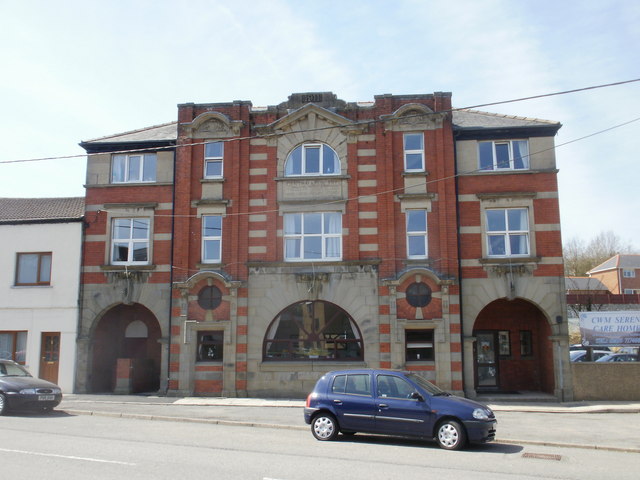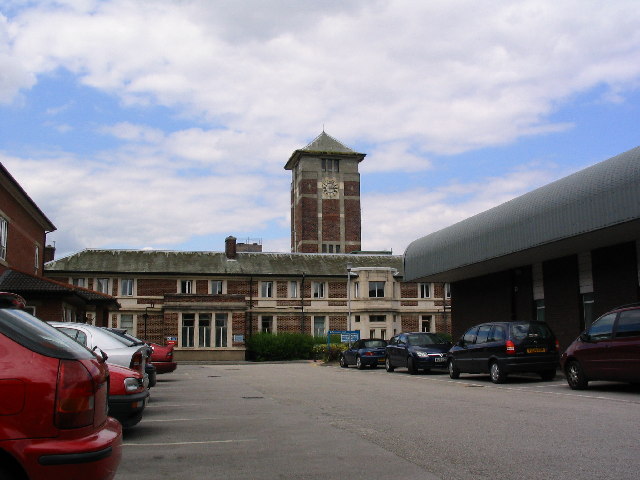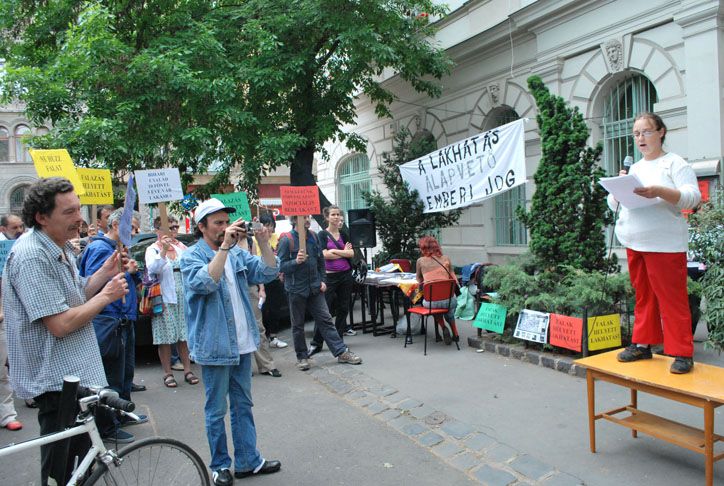|
Tredegar Medical Aid Society
Tredegar Medical Aid Society was founded in Tredegar in South Wales. In return for contributions from its members it provided health care free at the point of use. This society contributed the model which established the British National Health Service. According to Colin Ward, the model had "evolved from the vast network of friendly societies and mutual aid organisations that had sprung up through working class self-help in the 19th century." History In 1890, the ''Tredegar Workmen's Medical Aid and Sick Relief Fund'' was formed by a merger of a large number of local benevolent societies in Tredegar, including one society which provided medical benefits and funeral expenses to its 3,000 members. The local Cottage Hospital was established in 1904 following a proposal made at the society in 1901. The hospital's land had been funded by Lord Tredegar after a separate committee of thirty had been formed to organise the hospital's establishment. The construction costs were paid b ... [...More Info...] [...Related Items...] OR: [Wikipedia] [Google] [Baidu] |
Tredegar Central Surgery 1821167 730c1e4a
Tredegar (pronounced , ) is a town and community situated on the banks of the Sirhowy River in the county borough of Blaenau Gwent, in the southeast of Wales. Within the historic boundaries of Monmouthshire, it became an early centre of the Industrial Revolution in Wales. The relevant wards (Tredegar Central and West, Sirhowy and Georgetown) collectively listed the town's population as 15,103 in the UK 2011 census. History Origin of the name The original Tredegar is in Coedcernyw by Newport, and is nowadays more usually known in English as (in order to avoid confusion) Tredegar House (or Tredegar Park). Older forms of the name show it to be Tredegyr (this form is found in 1550) (by the modern Welsh period generally this final "y" would have become "e". In south-eastern Welsh, or Gwentian, which is the variety of Welsh spoken historically in Tredegar, this would have in turn become "a", as with Gwentian "Merchar" (Wednesday), standard Welsh "Mercher", from older Welsh "Merchy ... [...More Info...] [...Related Items...] OR: [Wikipedia] [Google] [Baidu] |
Sick Pay
Sick leave (or paid sick days or sick pay) is paid time off from employment, work that workers can use to stay home to address their health needs without losing pay. It differs from paid vacation time or time off work to deal with personal matters, because sick leave is intended for health-related purposes. Sick leave can include a mental health day and taking time away from work to go to a Doctor's visit, scheduled doctor's appointment. Some policies also allow paid sick time to be used to care for sick family members, or to address health and safety needs related to domestic violence or sexual assault. Menstrual leave is another type of time off work for a health-related reason, but it is not always paid. In most nations, some or all employers are required to pay their employees for some time away from work when they are ill. Most European, many Latin American, a few African and a few Asian countries have legal requirements for paid sick leave for employees. In nations without law ... [...More Info...] [...Related Items...] OR: [Wikipedia] [Google] [Baidu] |
1873 Establishments In Wales
Events January–March * January 1 ** Japan adopts the Gregorian calendar. ** The California Penal Code goes into effect. * January 17 – American Indian Wars: Modoc War: First Battle of the Stronghold – Modoc Indians defeat the United States Army. * February 11 – The Spanish Cortes deposes King Amadeus I, and proclaims the First Spanish Republic. * February 12 ** Emilio Castelar, the former foreign minister, becomes prime minister of the new Spanish Republic. ** The Coinage Act of 1873 in the United States is signed into law by President Ulysses S. Grant; coming into effect on April 1, it ends bimetallism in the U.S., and places the country on the gold standard. * February 20 ** The University of California opens its first medical school in San Francisco. ** British naval officer John Moresby discovers the site of Port Moresby, and claims the land for Britain. * March 3 – Censorship: The United States Congress enacts the Comstock Law, making it ... [...More Info...] [...Related Items...] OR: [Wikipedia] [Google] [Baidu] |
Health Minister
A health minister is the member of a country's government typically responsible for protecting and promoting public health and providing welfare and other social security services. Some governments have separate ministers for mental health. Country-related articles and lists * Albania: Ministry of Health (Albania) * Argentina: Ministry of Health (Argentina) * Australia: Minister for Health (Australia) * Austria: Minister of Health (Austria) * Azerbaijan: Ministry of Healthcare (Azerbaijan) * Bhutan: Ministry of Health (Bhutan) * Bahamas: Ministry of Health (Bahamas) * Barbados: Ministry of Health and Wellness (Barbados) * Belgium: Ministry of Public Health (Belgium) * Bolivia: Ministry of Health (Bolivia) * Botswana: Ministry of Health and Wellness (Botswana) * Brazil: Ministry of Health (Brazil) * Brunei: Ministry of Health (Brunei) * Cambodia: Ministry of Health, Cambodia * Canada: Minister of Health (Canada) * Chile: Ministry of Health (Chile) * People's Republic of C ... [...More Info...] [...Related Items...] OR: [Wikipedia] [Google] [Baidu] |
Attlee Ministry
Clement Attlee was invited by King George VI to form the Attlee ministry in the United Kingdom in July 1945, succeeding Winston Churchill as Prime Minister of the United Kingdom. The Labour Party had won a landslide victory at the 1945 general election, and went on to enact policies of what became known as the post-war consensus, including the establishment of the welfare state and the nationalisation of some industries. The government's spell in office was marked by post-war austerity measures, the violent crushing of pro-independence and communist movements in Malaya, the grant of independence to India, the engagement in the Cold War against Soviet Communism as well as the creation of the country's National Health Service (NHS). Attlee went on to win a narrow majority of five seats at the 1950 general election, forming the second Attlee ministry. Just twenty months after that election, Attlee called a new election for 25 October 1951 in an attempt to gain a larger m ... [...More Info...] [...Related Items...] OR: [Wikipedia] [Google] [Baidu] |
Aneurin Bevan
Aneurin "Nye" Bevan PC (; 15 November 1897 – 6 July 1960) was a Welsh Labour Party politician, noted for tenure as Minister of Health in Clement Attlee's government in which he spearheaded the creation of the British National Health Service. He is also known for his wider contribution to the founding of the British welfare state. He was first elected as MP for Ebbw Vale in 1929, and used his Parliamentary platform to make a number of influential criticisms of Winston Churchill and his Conservative government during the Second World War. Before entering Parliament, Bevan was involved in miner's union politics and was a leading figure in the 1926 general strike. Bevan is widely regarded as one of the most influential left-wing politicians in British history. Raised in Monmouthshire by a Welsh working-class family, he was the son of a coal miner and left school at 14. Bevan first worked as a miner during his teens where he became involved in local miner's union polit ... [...More Info...] [...Related Items...] OR: [Wikipedia] [Google] [Baidu] |
The Citadel (novel)
''The Citadel'' is a novel by A. J. Cronin, first published in 1937, which was groundbreaking in its treatment of the contentious theme of medical ethics. It has been credited with laying the foundation in Britain for the introduction of the NHS a decade later. In the United States, it won the National Book Award for 1937 novels, voted by members of the American Booksellers Association. For his fifth book, Dr. Cronin drew on his experiences practising medicine in the coal-mining communities of the South Wales Valleys, as he had for '' The Stars Look Down'' two years earlier. Specifically, he had researched and reported on the correlation between coal dust inhalation and lung disease in the town of Tredegar. He had also worked as a doctor for the Tredegar Medical Aid Society at the Cottage Hospital, which served as the model for the National Health Service. Cronin once stated in an interview, "I have written in ''The Citadel'' all I feel about the medical profession, its ... [...More Info...] [...Related Items...] OR: [Wikipedia] [Google] [Baidu] |
Walter Conway
Walter Conway (1872 – 1933) was the longstanding secretary of the Tredegar Medical Aid Society in South Wales. This society contributed the model which established the British National Health Service. Early life John Walter Conway, to give him his full name, was born in October 1872 to Thomas Conway, iron puddler, and Mary Conway (née Thomas), in Plantation Street, Rhymney. He had one sibling, his brother Thomas, who was born four years later. The 1881 census documents that Conway’s father had become a single parent, living with his two young sons in Tredegar, in the next valley. Perhaps his father decided to move to Tredegar to find work there. It had coal mines and an iron works, and was a boom town. While Conway was still a child, his father died. Consequently he was placed (with, presumably, his brother) in the care of the Bedwellty Union Workhouse, the town’s workhouse. The building was called 'Ty Bryn'. However, the workhouse was informally called 'The Spike’. Co ... [...More Info...] [...Related Items...] OR: [Wikipedia] [Google] [Baidu] |
Grassroots
A grassroots movement is one that uses the people in a given district, region or community as the basis for a political or economic movement. Grassroots movements and organizations use collective action from the local level to effect change at the local, regional, national or international level. Grassroots movements are associated with bottom-up, rather than top-down decision making, and are sometimes considered more natural or spontaneous than more traditional power structures. Grassroots movements, using self-organization, encourage community members to contribute by taking responsibility and action for their community. Grassroots movements utilize a variety of strategies from fundraising and registering voters, to simply encouraging political conversation. Goals of specific movements vary and change, but the movements are consistent in their focus on increasing mass participation in politics. These political movements may begin as small and at the local level, but grassroots ... [...More Info...] [...Related Items...] OR: [Wikipedia] [Google] [Baidu] |
Benevolent Society
The Benevolent Society, founded by Edward Smith Hall in 1813, is Australia's first and oldest charity. The society is an independent, not-for-profit organization whose main goals include helping families, older Australians and people with disabilities. The Benevolent Society centers around the advancement of society and positive change. Many of today's essential services in Australia were pioneered by The Benevolent Society, and its legacy of advocacy for progressive, positive change continues to inform their work today. The organization currently delivers services from 60 locations across New South Wales, including four main Sydney hubs and a national office, and the ACT, and 16 sites in Queensland. It has 1600 staff, plus a volunteer force of about 700. More than 56,000 people were reached through The Benevolent Society's 90 services, community programs and events in 2016–17. The chief executive officer is Lin Hatfield Dodds, and the chair of the company is Lisa Chung. Foci T ... [...More Info...] [...Related Items...] OR: [Wikipedia] [Google] [Baidu] |
Invalidity Bill
Disability is the experience of any condition that makes it more difficult for a person to do certain activities or have equitable access within a given society. Disabilities may be cognitive, developmental, intellectual, mental, physical, sensory, or a combination of multiple factors. Disabilities can be present from birth or can be acquired during a person's lifetime. Historically, disabilities have only been recognized based on a narrow set of criteria—however, disabilities are not binary and can be present in unique characteristics depending on the individual. A disability may be readily visible, or invisible in nature. The United Nations Convention on the Rights of Persons with Disabilities defines disability as: Disabilities have been perceived differently throughout history, through a variety of different theoretical lenses. There are two main models that attempt to explain disability in our society: the medical model and the social model. The medical model serves as ... [...More Info...] [...Related Items...] OR: [Wikipedia] [Google] [Baidu] |
Tredegar
Tredegar (pronounced , ) is a town and community situated on the banks of the Sirhowy River in the county borough of Blaenau Gwent, in the southeast of Wales. Within the historic boundaries of Monmouthshire, it became an early centre of the Industrial Revolution in Wales. The relevant wards (Tredegar Central and West, Sirhowy and Georgetown) collectively listed the town's population as 15,103 in the UK 2011 census. History Origin of the name The original Tredegar is in Coedcernyw by Newport, and is nowadays more usually known in English as (in order to avoid confusion) Tredegar House (or Tredegar Park). Older forms of the name show it to be Tredegyr (this form is found in 1550) (by the modern Welsh period generally this final "y" would have become "e". In south-eastern Welsh, or Gwentian, which is the variety of Welsh spoken historically in Tredegar, this would have in turn become "a", as with Gwentian "Merchar" (Wednesday), standard Welsh "Mercher", from older Welsh "Merchyr ... [...More Info...] [...Related Items...] OR: [Wikipedia] [Google] [Baidu] |

.jpg)



